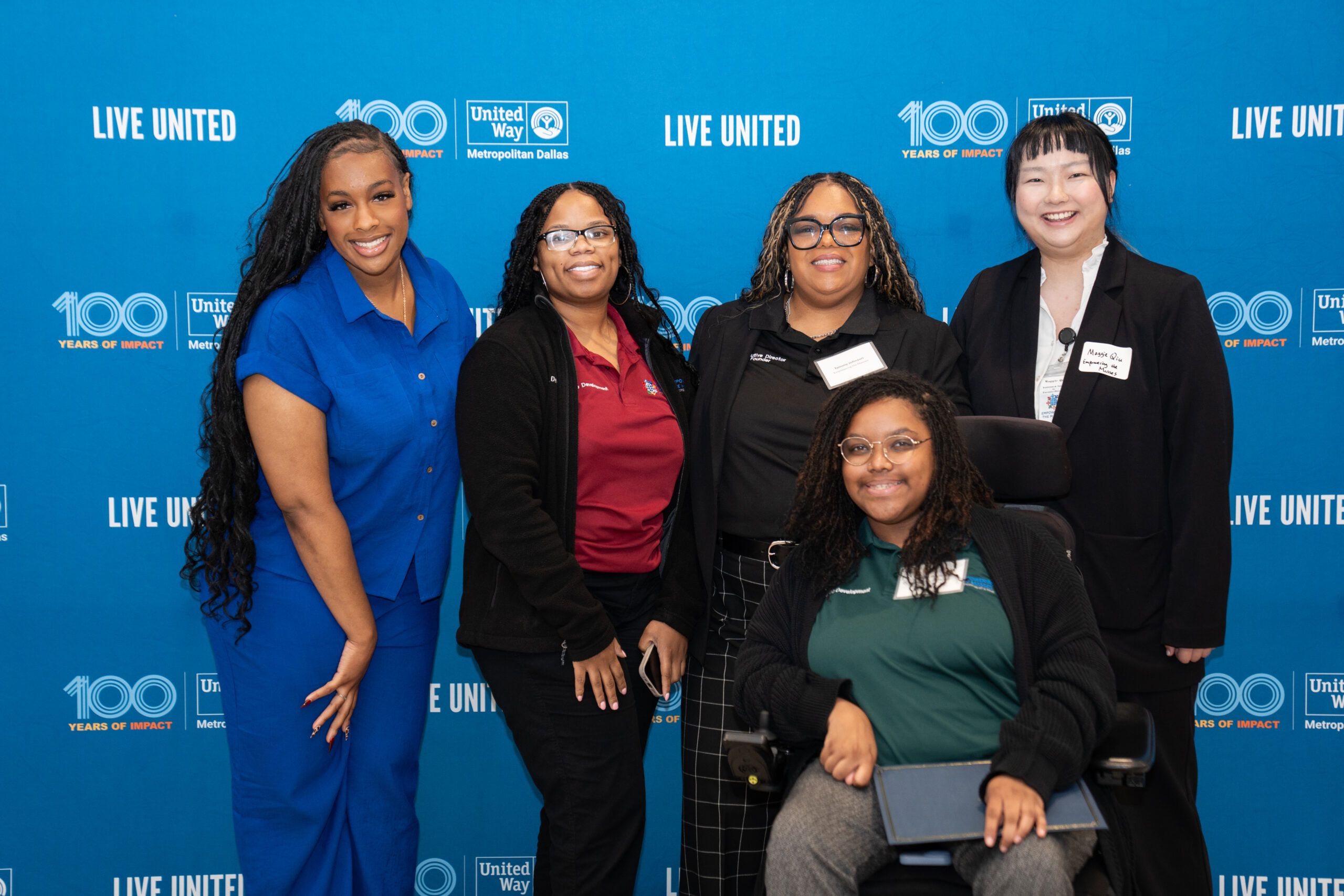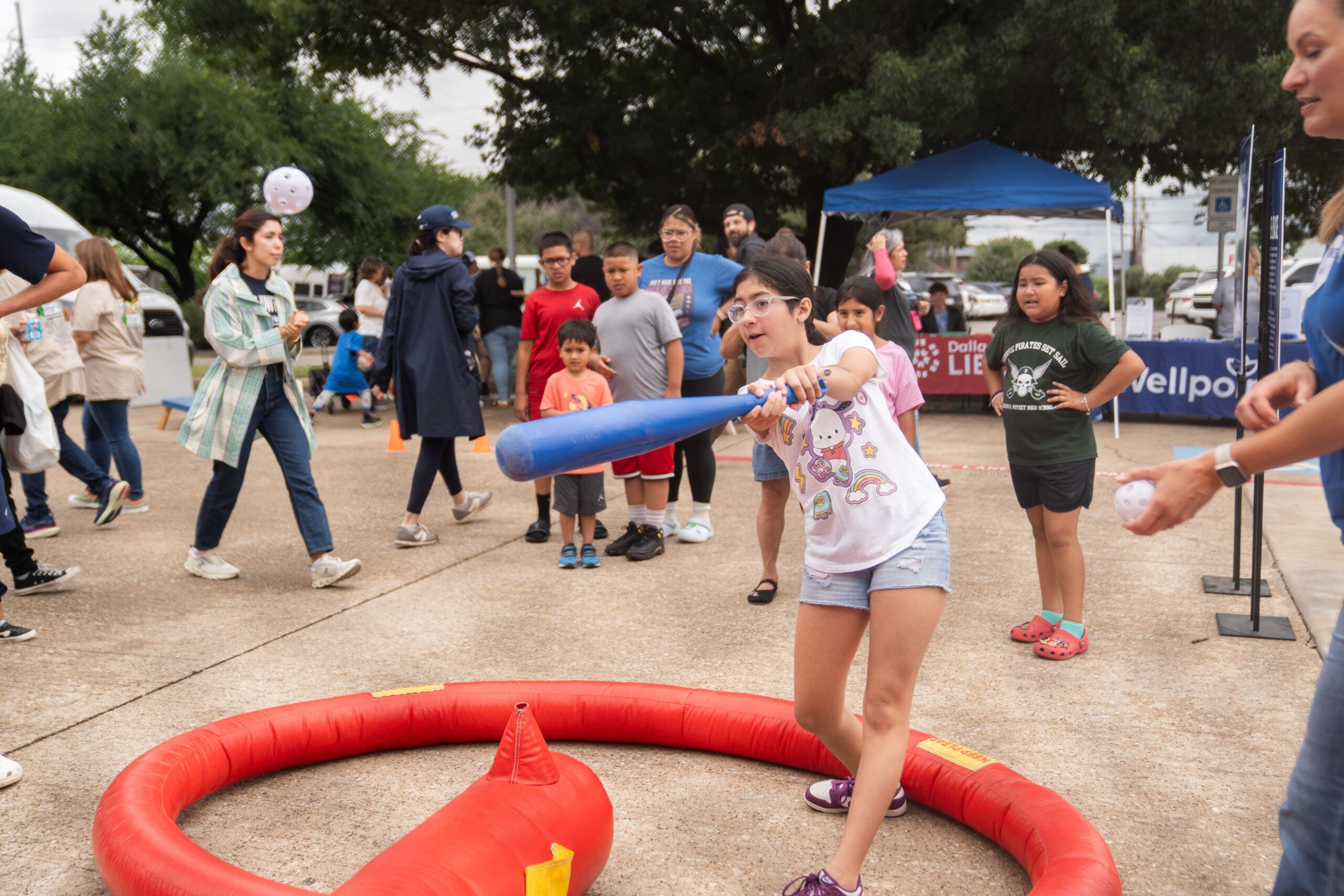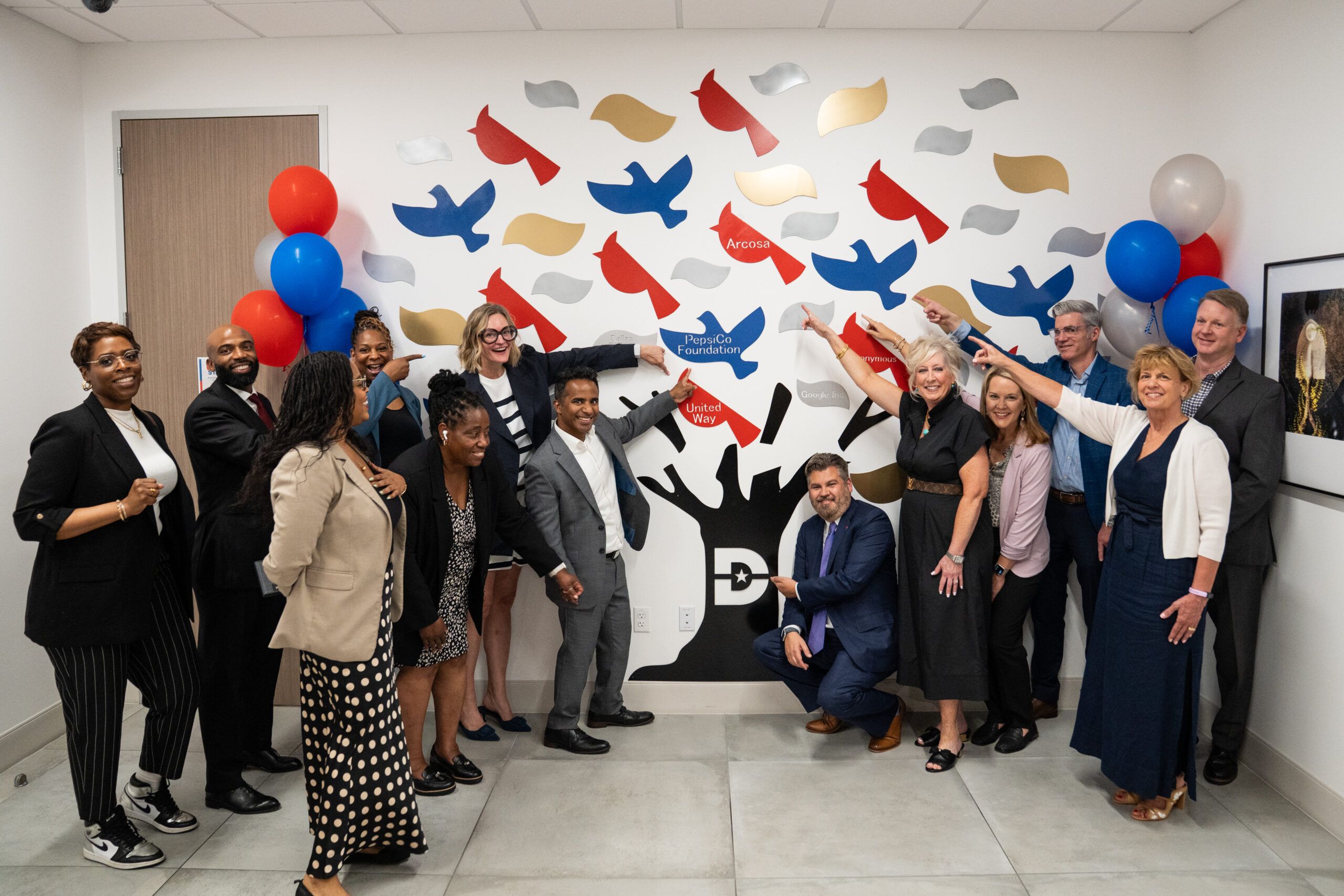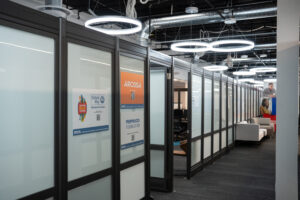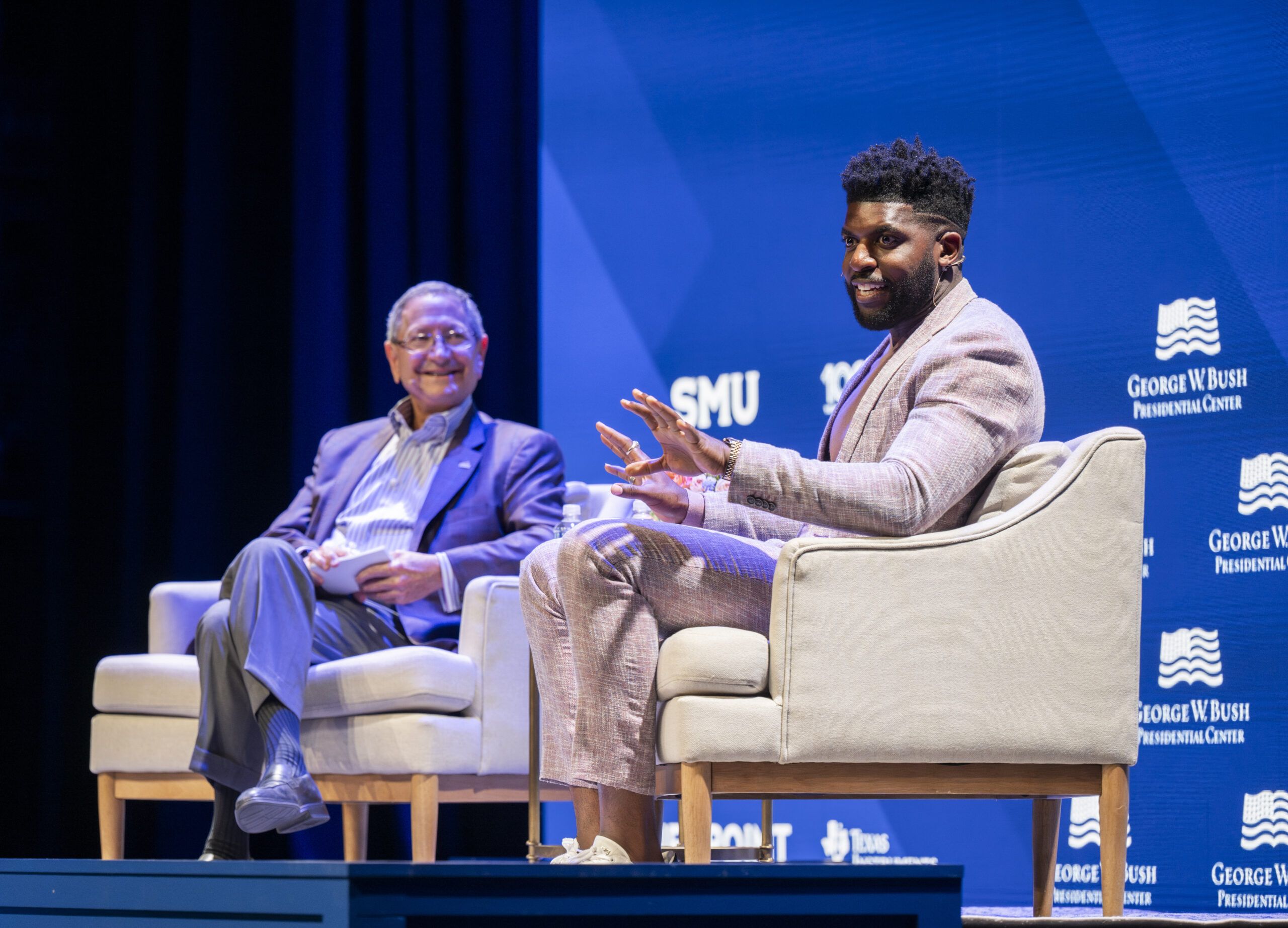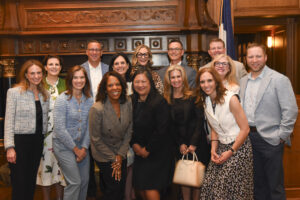We’re Empowering Nonprofits to Leverage Data to Take Their Impact to the Next Level
On June 11, United Way of Metropolitan Dallas welcomed funders, partners and community leaders to Pegasus Park for a powerful presentation highlighting the transformative impact of the Data Capacity Building Initiative (DCBI)—a cornerstone of United Way’s Second Century Project.
As we mark 100 years of community change in North Texas, the DCBI is launching us into our second century of impact by creating a multiplier effect on United Way programs and partnerships.
By equipping community-based organizations with the tools and knowledge needed to analyze local challenges and develop sustainable, collaborative solutions, the initiative is creating a groundswell of progress toward our community-wide Aspire United 2030 goals in education, income and health.
“This initiative is about democratizing data—putting powerful analytical tools in the hands of those who are closest to our community’s challenges and combining the data science with structured capacity building, technical assistance and ongoing support,” said Jennifer Sampson, McDermott-Templeton president and CEO of United Way of Metropolitan Dallas.
Data Drives Lasting Community Change
The recent DCBI event was led by United Way Centennial Advisory Council co-chairs Katie Robbins, president and CEO of The Hoblitzelle Foundation, and Andy Smith, director of Giving and Volunteering at Texas Instruments and executive director of the TI Foundation. The presentation spotlighted how 12 community-based organizations are using data to drive measurable change across North Texas.
The first cohort of the DCBI included:
- Beacon Hill Preparatory Institute
- Boys & Girls Clubs of Greater Dallas
- Black Heart Association
- Communities In Schools of the Dallas Region
- Empowering the Masses, Inc.
- Families to Freedom Inc.
- Lone Star Justice Alliance
- Miles of Freedom
- New Friends New Life
- T.R. Hoover Community Development Corporation
- The Concilio
- Youth With Faces – Youth Village Resources of Dallas, Inc.
Attendees were treated to a dynamic panel discussion featuring representatives from the inaugural DCBI cohort, who shared firsthand how the initiative has helped them turn data into actionable insights—improving services, expanding reach and deepening their impact.
The event also featured highlights from the DCBI program and the Community Vulnerability Compass (CVC), developed in collaboration with the Parkland Center for Clinical Innovation, our external Aspire United 2030 evaluator.
The CVC is based on the Healthy People 2030 framework, a national health promotion and disease prevention initiative aimed at improving the health and well-being of all Americans. It includes 27 clinical and socio-economic indicators that highlight the health, resiliency and economic vibrancy of neighborhoods, which, leveraged together, provide micro-level, hyper-local data to identify areas of greatest need and inform targeted interventions.
At United Way, the CVC enables us to target our community investments more strategically. And, since launching the DCBI, the tool is also equipping community-based organizations with the resources and knowledge needed to analyze local challenges and develop sustainable, collaborative solutions, empowering them to better understand community needs and respond with precision and purpose.
Accelerating Progress—Together
Destiny Davis, senior director of the DCBI at United Way of Dallas, said, “We’re proud of the progress made by the first cohort of the DCBI. We’re confident that by empowering grassroots community organizations with data, we will continue to create greater impact across North Texas over the six-year initiative”
Together with our supporters and community partners, we’re driving progress through initiatives like the DCBI to ensure:
- Every child begins school ready to learn and graduates from high school ready for success
- Everyone has the skills and resources needed to get and keep a good paying job
- Every neighbor has access to the healthcare needed to live longer, healthier lives
Special thanks to the funders who made this initiative possible: The Addy Family Foundation, Communities Foundation of Texas, The Lyda Hill Foundation, The Meadows Foundation, The Eugene McDermott Foundation, The Rose Family Foundation, The Hoblitzelle Foundation and the Texas Instruments Foundation.
Together, we’re proving that data isn’t just numbers—it’s a catalyst for change.
Invest in Our Data-Driven Community Impact Work
As United Way enters its second century, the path forward is clear: We must continue building strong partnerships and leveraging innovative tools to create lasting, transformational change in North Texas.
We invite you to join the forward-thinking organizations that have invested in our Century Project, the Data Capacity Building Initiative. Together, we can expand our proven, data-driven community impact strategy and our use of local data to develop collective solutions for our community.
Click here to invest today. For more information, contact Susan Hoff at shoff@unitedwaydallas.org.
